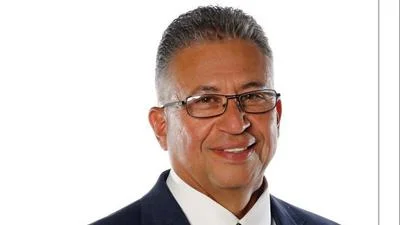New Mexico recently launched an Environmental Crimes Task Force to increase federal, tribal and state cooperation in investigating and prosecuting criminal violations of environmental laws in a partnership between the New Mexico Environment Department and the U.S. Environmental Protection Agency.
According to a news release from New Mexico's Environmental Department, the Environmental Crimes Task Force will regularly meet with members of federal, tribal and state agencies to discuss individuals and entities who threaten the environment by violating environmental laws. Violating environmental laws -- which includes federal and state air, water and hazardous waste laws -- can be punishable by incarceration and/or monetary fines.
“If you circumvent New Mexico’s environmental laws, we will find you and we will prosecute you,” Environment Department Cabinet Secretary James Kenney said, according to the news release. “The Environmental Crimes Task Force will bring much-needed investigation and prosecution resources and coordination to New Mexico, which will serve to level the playing field and increase environmental compliance in our communities.”
Commissioner of Public Lands Stephanie Garcia Richard explained how the state of New Mexico will be enforcing laws put into place to prevent companies from harming the environment.
“As land commissioner, I’ve prioritized the protection of our natural resources,” Richard said, according to the news release. “Under our Accountability and Enforcement program, we’ve successfully persuaded companies to comply with their environmental obligations. Many companies do the right thing, but when companies don’t and they break the law, there should be consequences for those actions. We’re proud to be a part of this task force and look forward to working with other agencies to safeguard New Mexico’s natural resources.”
The task force will focus on underserved communities that have been historically hurt the most by environmental injustice.
“Low-income communities and communities of color have disproportionately borne the burden of environmental crime," Alexander M.M. Uballez, U.S. Attorney for the District of New Mexico, said, according to the news release. "Through the Environmental Crimes Task Force, we will bring fair treatment and meaningful involvement of underserved communities that have been historically marginalized and overburdened by systemic environmental violations, pollution, climate change and abuse of natural resources.”
The Task Force will partner with the following state and federal agencies in investigating and prosecuting those who commit environmental crimes: the New Mexico attorney general; New Mexico Department of Public Safety; New Mexico Energy, Minerals and Natural Resources; New Mexico Environment Department; New Mexico Game and Fish Department; New Mexico State Land Office; Federal Bureau of Investigation’s Albuquerque Field Office; U.S. Attorney’s Office; U.S. Environmental Protection Agency; U.S. Fish and Wildlife Service; and the Navajo Nation Department of Justice.
Examples of environmental crimes include a chop shop where oil is being dumped, industries that don’t follow the proper safety protocol and put workers and the public at risk, a company that illegally dumps pollutants into the water system, importing illegal pesticides, refrigerants or wildlife, and more.
“This task force is being created to curb environmental crime in the state of New Mexico and neighboring tribal territories,” Kim Bahney, Special Agent in Charge of EPA’s Criminal Investigation Division for the Southwest Area Branch, said, according to the news release. “Public health and the environment should not suffer at the hands of deliberate polluters.”
On the Navajo Nation, depending on the nature of the crime, both the Navajo Nation and the U.S. Attorney’s Office may have jurisdiction.









